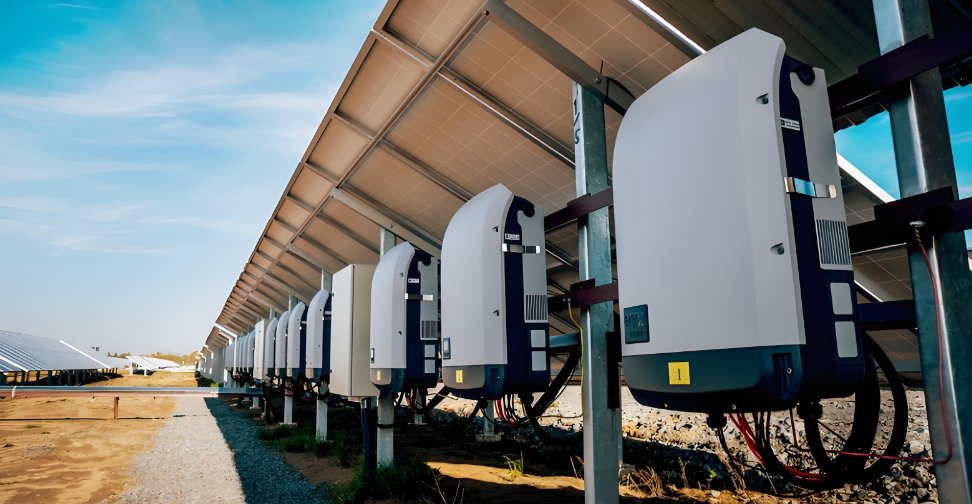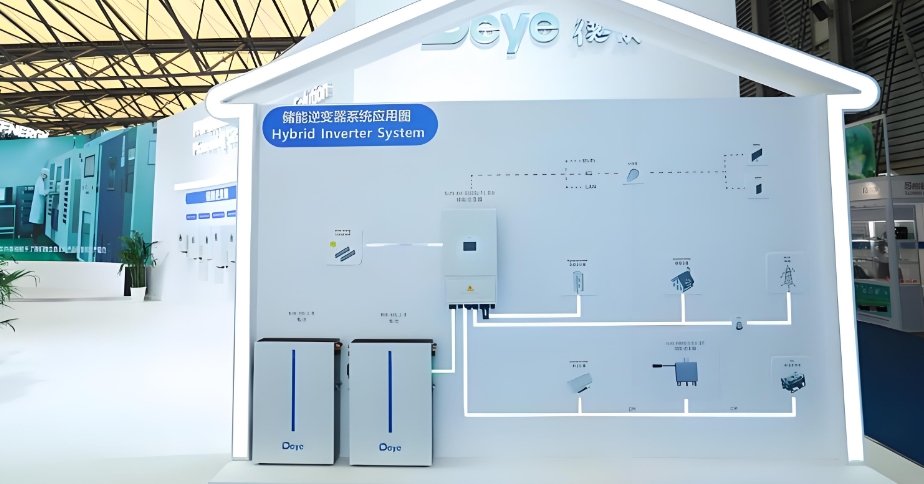Choosing the right battery for your Deye Hybrid Inverter is key to optimizing your solar energy system’s performance. Let’s explore which batteries are the best fit.
When selecting a battery for your Deye Hybrid Inverter, it’s important to consider voltage, capacity, and compatibility with specific battery technologies like LiFePO4.
Are you ready to find out which batteries work best with the Deye Hybrid Inverter? Keep reading for more information.
What Types of Batteries Work Best with Deye Hybrid Inverters?
Deye Hybrid Inverters are designed to work with specific battery technologies that ensure compatibility, efficiency, and long-term performance.
The most common types of batteries compatible with Deye Hybrid Inverters are Lithium-ion (Li-ion) and LiFePO4 batteries. These provide high efficiency and reliability for solar energy systems.
When selecting a battery for use with your Deye Hybrid Inverter, consider the following types of batteries:
Lithium-Ion (Li-ion) Batteries
Lithium-ion batteries are widely compatible with Deye Hybrid Inverters due to their high efficiency, longer lifespan, and superior performance. These batteries can deliver consistent power, are compact, and require less maintenance compared to traditional lead-acid batteries.
LiFePO4 (Lithium Iron Phosphate) Batteries
LiFePO4 batteries1 are a subset of lithium-ion batteries that provide enhanced safety and stability. They are known for their longer cycle life, making them ideal for long-term use in solar systems. Deye Hybrid Inverters are specifically designed to work well with LiFePO4 batteries, which are safer and more durable than many other lithium-ion technologies.
Lead-Acid Batteries (Limited Compatibility)
While Deye Hybrid Inverters can work with lead-acid batteries, they are less efficient and have a shorter lifespan compared to lithium-based options. Lead-acid batteries are suitable for basic systems but are less commonly used in high-efficiency setups due to their lower energy density and higher maintenance requirements.
| Battery Type | Compatibility with Deye Inverter | Key Features |
|---|---|---|
| Lithium-Ion (Li-ion) | High compatibility | High efficiency, long lifespan, low maintenance |
| LiFePO4 | Ideal choice | Safe, stable, long cycles |
| Lead-Acid | Limited compatibility | Shorter lifespan, more maintenance |
How Does Voltage and Capacity Impact Battery Compatibility with Deye Inverter?
Voltage and capacity are essential factors when matching batteries with your Deye Hybrid Inverter.
To ensure optimal performance, the voltage and capacity of the battery should align with the inverter’s specifications.
Voltage Compatibility
One of the most crucial factors when choosing a battery for the Deye Hybrid Inverter is ensuring that the battery’s voltage2 matches the inverter’s voltage input. Deye Hybrid Inverters typically operate at 48V, meaning the battery must also have a voltage rating of 48V for compatibility.
Using a battery with a higher or lower voltage than the inverter can lead to inefficient power conversion or damage to the system. Therefore, always check that the battery’s voltage aligns with the inverter’s rated voltage (usually 48V).
Capacity and Power Rating
Battery capacity3 (measured in kWh) refers to how much energy a battery can store. To ensure your battery works efficiently with the Deye Hybrid Inverter, choose one with a capacity that meets your energy usage needs. For example, a 5kWh battery will provide less backup power than a 10kWh battery.
Power rating (measured in kW) determines how much power can be drawn from the battery at once. The inverter’s power output must align with the battery’s power capacity to ensure smooth operation.
Impact of Mismatched Voltage or Capacity
If the battery’s voltage is mismatched with the inverter’s voltage, the inverter will either fail to charge the battery or cause inefficiencies. Similarly, using a battery with insufficient capacity or power rating will result in suboptimal performance, reducing the overall effectiveness of the solar energy system.
| Factor | Importance of Compatibility |
|---|---|
| Voltage | Must match (typically 48V for Deye Hybrid) |
| Capacity | Ensure sufficient storage for energy needs |
| Power Rating | Ensure battery’s power can handle inverter output |
Are LiFePO4 Batteries a Good Match for Deye Hybrid Inverters?
LiFePO4 batteries are an excellent match for Deye Hybrid Inverters due to their unique properties and compatibility with the inverter’s requirements.
LiFePO4 batteries are one of the best choices for pairing with Deye Hybrid Inverters, offering enhanced safety, a longer lifespan, and high efficiency.
Advantages of LiFePO4 Batteries with Deye Hybrid Inverters
- Longer Lifespan: LiFePO4 batteries can last up to 6,000-8,000 charge cycles, compared to traditional lithium-ion batteries with fewer cycles. This makes them ideal for long-term residential and commercial use.
- Safety: LiFePO4 batteries are more stable and safer than other lithium-ion battery types. They have lower risks of thermal runaway and are better suited for environments where temperature control is critical.
- High Efficiency: These batteries offer high round-trip efficiency, meaning they can store and deliver energy with minimal loss. This makes them an efficient choice for solar energy storage.
- Environmental Friendliness: LiFePO4 batteries are made using non-toxic materials and are easier to recycle compared to other lithium-ion battery types, making them an environmentally friendly option.
Why Deye Hybrid Inverters and LiFePO4 Batteries Are a Perfect Match
Deye Hybrid Inverters are specifically designed to be compatible with LiFePO4 batteries, making integration simple and efficient. The inverter’s battery management system (BMS) works seamlessly with LiFePO4’s charging and discharging characteristics, ensuring that the battery remains within safe operating parameters.
| Battery Type | Advantages with Deye Hybrid Inverter |
|---|---|
| LiFePO4 | Long lifespan, safe, efficient, environmentally friendly |
How Can You Ensure Proper Integration Between Deye Hybrid Inverter and Battery?
Proper integration between your Deye Hybrid Inverter and battery ensures the system operates efficiently, safely, and with minimal risk of failure.
To ensure seamless integration, make sure to match voltage, capacity, and ensure compatibility with the inverter’s communication protocols.
Check Voltage and Capacity Compatibility
Before installation, always confirm that the battery’s voltage and capacity4 match the inverter’s input voltage (usually 48V). Additionally, ensure that the battery’s capacity meets your energy needs and is compatible with the inverter’s output capacity.
Verify Battery Communication with the Inverter
Many Deye Hybrid Inverters come with a Battery Management System (BMS) that communicates with the battery to monitor charging, discharging, and performance data. Make sure that the battery supports the required communication protocols (such as Modbus or CAN Bus) to ensure the inverter can properly manage the battery.
Professional Installation
For optimal performance, have a professional installer handle the integration of the inverter and battery. They will ensure that all connections are secure, the system is properly configured, and the components are fully compatible.
System Monitoring
Once installed, ensure that the inverter and battery are properly monitored using a remote monitoring system. This allows you to track performance, check for any potential issues, and ensure the system is running optimally.
| Integration Step | Action Needed |
|---|---|
| Voltage & Capacity | Ensure battery matches inverter specs |
| Communication | Check for compatible BMS and protocols |
| Installation | Hire a professional for proper setup |
| Monitoring | Use remote monitoring to track performance |
Conclusion
The best batteries for Deye Hybrid Inverters are lithium-based options, particularly LiFePO4, which offer superior performance, safety, and efficiency. By matching voltage, capacity, and ensuring communication compatibility, you can maximize your system’s efficiency and lifespan.
Footnotes:
-
LiFePO4 batteries provide enhanced safety, stability, and longer cycle life, making them an ideal match for Deye Hybrid Inverters. ↩
-
Matching voltage between the battery and inverter ensures safe and efficient energy conversion, avoiding potential damage or inefficiencies. ↩
-
Proper battery capacity selection ensures sufficient energy storage to meet your usage needs and maintain optimal inverter performance. ↩
-
Properly matching voltage and capacity ensures the safe and efficient operation of the Deye Hybrid Inverter and battery system. ↩








